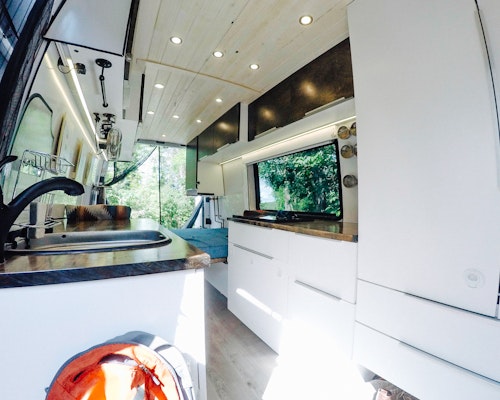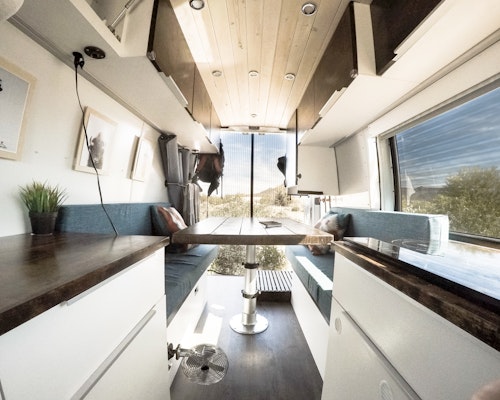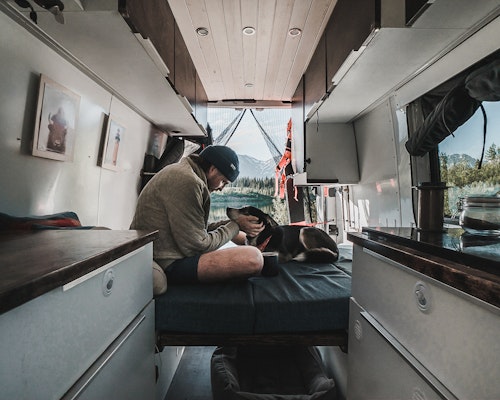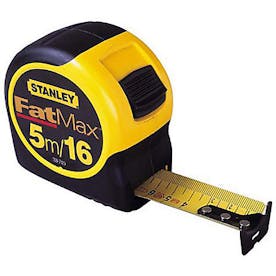
Sign up for The Wanderful newletter
Join our growing community of people looking to live the simple life!
Let’s build your van now
Join our growing community of people looking to live the Simple Life


)
Whether you want to live and travel in a van full-time or you just want to use it as your ultimate road trip vehicle, there’s a lot of work that goes into turning an empty van into a livable camper.
While some aspiring Van Lifers choose to get a dreamy custom build from companies like Vanlife Customs, ADF Sprinters, or Sportmobile, others choose to take the DIY route.
Is there anything more fulfilling than building something with your own two hands?








There comes a time during your seemingly endless research when you just need to bite the bullet and START the project. Naturally, the first step to building something is to gather the necessary tools to help you get there.
The short answer is: it depends. Not all van conversions are the same.
Some vans are built with all the bells and whistles you could dream of and therefore need more elaborate tools and materials. Others may be more simple with only basic tools and materials needed.
Regardless, there are certain tools that nearly any DIY Van Conversion will benefit from.
So with that said…
Consider the tape measure your new best friend. This tool is essential in nearly every aspect of the build, whether it be to measure out your cabinets, or before making cuts in your insulation.
Don’t forget to measure twice, cut once! ($14 on Amazon)

A utility knife comes in extremely handy throughout the build, whether it be to cut upholstery or foam board. ($13 on Amazon)
My utility knife got the most use throughout the:
Your standard retractable blade will suffice, but I’ve also recently become obsessed with the Spyderco Para 3 Folding Knife.
Another essential tool that you will use constantly in a Van Build is a good Drill.
A drill is needed for cabinets, plumbing, windows… You name it.
This is a tool that I’d recommend either purchasing or borrowing from a friend as you will need it throughout most aspects of the build and renting it likely wouldn’t be cost-effective, in the end.
I went with the Makita cordless drill ($100 USD on Amazon). Be sure to grab a set of drill bits as well! ($19 USD on Amazon).
You may find yourself using a combination of different saws throughout your van build (table saw, chop saw, etc).
Circular Saws are, by far, the most versatile saw that can be used for anything from cutting sheets of wood to cutting ACP panels for the walls. It’s an easy-to-use handheld saw that can be adjusted by angle and depth.
I went with the Skil 5280-01 and it has served me very well! ($60 USD on Amazon)
Anytime you’re making a cut, you should be using a straight edge tool to make sure your cut is… well… straight!
This tool comes in handy during the insulation (cutting foam board), flooring, walls, windows, and cabinetry.
This Straight Edge tool is really a no-brainer if you want things to be aligned properly. ($34 USD on Amazon)
One thing that came particularly handy to me during the cabinetry install was Forstner Bits. These bits drill a flat-bottomed hole, which helped me to create and insert my cabinet hinges. ($30 USD on Amazon)
Throughout the van build, you’ll find that there are a few areas where you need to drill medium to large-sized holes, like when installing an Espar Heater under your passenger seat or setting up your plumbing/water system.
For that reason, I suggest picking up a hole saw kit. ($80-$100 USD on Amazon)
While the Circular Saw is designed for straight cuts, the Jig Saw will help with detailed edges, curves, and bodywork.
The Jig Saw comes particularly handy when cutting into the body of the van for the vent and window installs. ($140 on Amazon)
Tip: When using the Jig Saw against the body of the van, be sure to put down a lot of masking tape alongside the outside of your cut to avoid scratching the surface of the van with the saw deck.
A Kreg Jig is a fast, strong, and simple way of joining wood. It essentially involves drilling a hole at an angle into one piece of wood and then joining a second piece with self-tapping screws.
Using a Kreg Jig can be a huge timesaver and really help someone with zero cabinet experience. ($30 USD on Amazon)
Want to make sure your cabinets are straight? Then a square and level should be considered essential tools.
Both of these tools will help when making straight edges and angles.
Brad Nail guns are designed for small detailed wood applications like trim and cabinets. This tool is a game-changer when installing walls, ceiling and cabinets. ($47 USD on Amazon)
Don’t forget to grab brad nails! ($9 USD on Amazon)
Here is a shortlist of the tools mentioned above:
If you’re a seasoned DIYer, you likely already have some or most of the necessary tools for a van conversion project.
But let’s be real… If you’re an aspiring DIYer or someone who has never tackled a project of this scale, you might be wondering how you’re going to afford all the tools needed (let alone where to store them).
Here are a couple things to keep in mind:
)
I’ve given myself a timeframe for build #2. How long will it take me?
)
Purchasing a used van is a great first step into #vanlife, and in theory, should be cheaper than purchasing a brand-spanking-new vehicle… Right?
)
Are you ready to cover up that ugly insulation? It’s time to put up some walls!